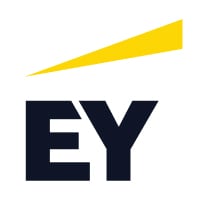

Chief legal officer | Schouw & Co.




Anne Sophie Friis
Chief legal officer | Schouw & Co.
Team size: 1 (single-handed function)
How do you approach managing legal aspects during periods of instability or crises, and how does your legal strategy align with the broader business strategy to ensure the organization’s resilience?
2025 appears to be characterised by extreme uncertainty more than anything else. The global economy is undergoing drastic change, which, in combination with major geopolitical tensions, may influence several of the international markets of importance to Schouw & Co. sales.
Despite a challenging global environment with escalating geopolitical tensions, the global reach of Schouw & Co., with presence in more than 35 countries across different industries, offsets the risks and underpins the strength of its business platform. Being present in a broad range of industries across many markets exposes us to changes. On the other hand, the diversification of the group also spreads operational risk and provides stability.
Our portfolio businesses work continuously to align their operations to a world of ever more volatile market conditions. Effectively managing legal risks across our businesses is crucial for navigating the ever-changing regulatory landscape with agility and precision, especially amid rising geopolitical tensions, as strong legal and risk management act as both a shield and a strategic enabler for the business.
Now more than ever, the corporate legal function must take a more integrated approach, working closely with various corporate functions, such as finance, risk and compliance. Cross-functional collaboration is prioritized, and we partner up with other corporate functions to embed legal and risk resilience into the broader corporate strategy, enabling us to adapt swiftly during volatile times and to help our businesses better navigate instability and crises.
We have clear communication strategies to manage legal disclosures, investor relations, and public announcements, also during times of high volatility, and we strive to uphold the highest corporate governance standards by ensuring ethical and responsible decision-making also under pressure.
What emerging technologies do you see as having the most significant impact on the legal profession in the near future, and how do you stay updated on these developments?
Advanced technologies, such as contract automation and management tools as well as compliance and regulatory monitoring tools, are becoming increasingly popular and common in the legal profession and the adoption of advanced technologies, is to a certain degree transforming in-house legal departments.
AI-driven tools in general can enhance legal research, document drafting, and contract management, leading to increased efficiency and accuracy. AI tools that can analyse case law, statutes, and legal documents much faster than humans as well as AI-driven contract analysis and automation that can streamline contract review, may reduce errors and increase efficiency. Also, AI can assist in drafting legal documents such as SPAs, NDAs, and contracts, reducing reliance on manual drafting. It can also process vast amounts of data to identify relevant information, e.g. facilitating the discovery of critical evidence in pre-litigation or regulatory investigations.
By utilising AI tools, in-house legal departments can save valuable time and resources, allowing them to focus on complex problem-solving, risk mitigation, and business advisory roles instead of labor-intensive manual tasks. By streamlining traditional legal tasks, resources are freed up to focus on higher-value legal and business operations, enabling the legal function to contribute to strategic planning, and ensure corporate decisions align with legal and ethical standards – expanding its influence beyond traditional legal functions. A transformation that enables the corporate legal function to evolve from an isolated advisory unit into an integral strategic partner within the organisation.
The extent to which we integrate AI into our processes and actively engage with these technologies largely depends on their potential to create value for the legal function and the business in general. We prioritise staying curious and proactive, aiming to stay ahead of trends so we can make informed decisions about whether and how to effectively leverage AI within the corporate legal function.
Chief legal officer | Schouw & Co.